D.C. Circuit Review – Reviewed: Start Your Engines
Law professor-ing can be a pretty cushy job. At first, teaching is hard, but it gets easier. Serving on committees takes time — but thankfully, I’ve yet to witness Sayre’s Law in action. And, candidly, it doesn’t take that much time. Writing letters of recommendation* is also part of a professor’s life, but it is rewarding to help students succeed. Grading is horrible rough, but if professors are willing to grit their teeth, it can be done in a few — long — days. All the while, law professors have flexible schedules, long summers, and a great deal of freedom (methodological and otherwise).
But there is one time of the year when law professors really need to work hard: the last week of January. You see, law reviews typically open up for submissions at the start of February, and most legal articles are “placed” during the February to March submission cycle.** So when late January comes around, professors often find themselves scrambling to put the finishing touches on what they’ve been working on for months. And when February 1st arrives, the race to place articles begins.
With that deadline in mind, this week’s post will be quick and law-review focused.
The most significant case is probably Duquesne University v. NLRB. Because it was handled by Kirkland & Ellis (where I’m of counsel), I will not spend much time analyzing it. Here, however, is a snippet:
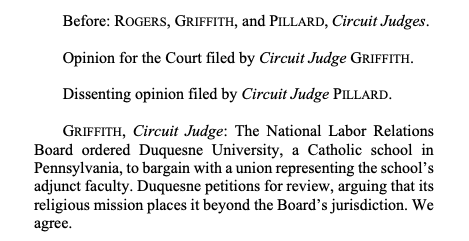
Articles editors, if you are wondering what types of articles to pick, note that the Court cited this one: Douglas Laycock, Towards a General Theory of the Religion Clauses: The Case of Church Labor Relations and the Right to Church Autonomy, 81 Colum. L. Rev. 1373 (1981). Not a bad title.
The other contender for biggest case of the week is Alliance of Artists and Recording Companies, Inc. v. Denso International America, which is about “in-vehicle audio recording devices that copy music from CDs onto hard drives within the devices, allowing the music to be played back inside the vehicle even without the CD.” Here is a taste:
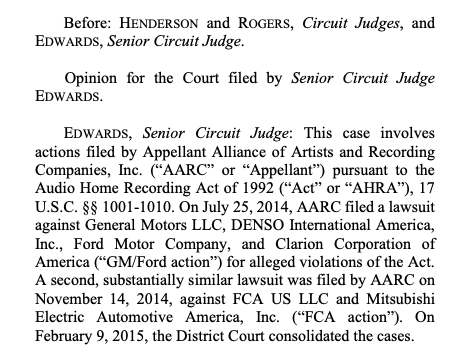
….
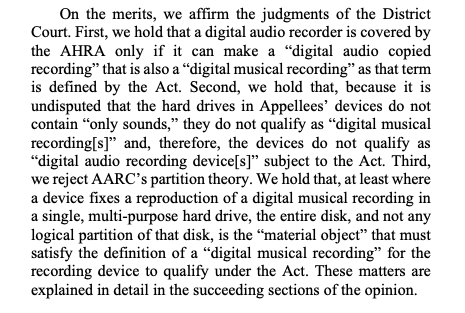
The merits issue in Alliance of Artists will probably get the most attention. But law students, if are looking for something that may be overlooked, read the Court’s analysis of “companion case” jurisdiction. I don’t think that particular issue has been squarely addressed in legal scholarship. Wouldn’t an article entitled Companion Jurisdiction be worth a read?
Next, consider Oviedo v. WMATA. Here is a sample:
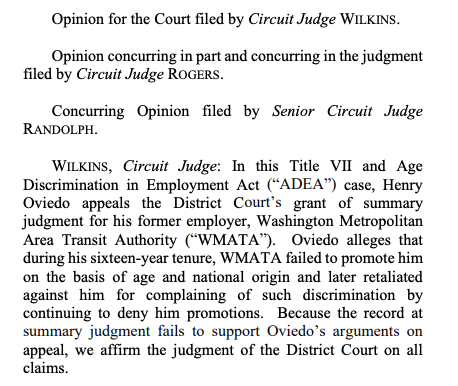
It isn’t everyday that one case prompts three opinions. So what’s the fight about? Here is Judge Rogers’ criticism:
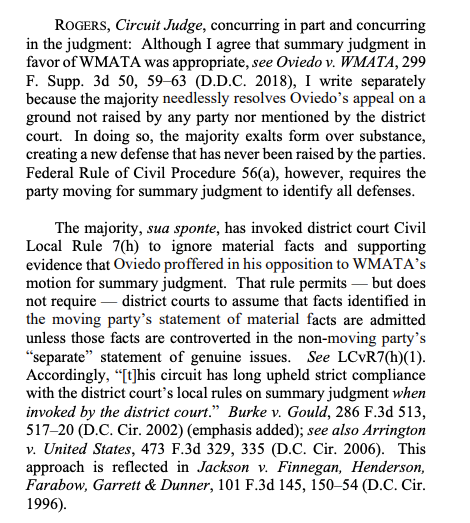
And here is Judge Randolph’s response:

Law students, if you are interested in the topic of local rules, check out Daniel S. McConkie, The Local Rules Revolution in Criminal Discovery, 39 Cardozo L. Rev. 102 (2017). I read it a few years ago and learned a lot.
Loumiet v. United States opens this way:
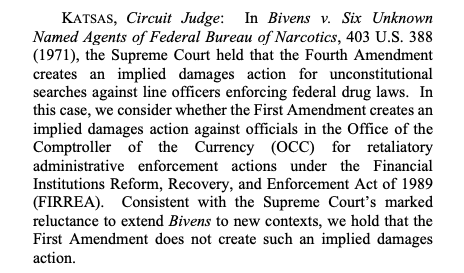
If you are interested in scholarship about Bivens and qualified immunity, well, here you go: Aaron L. Nielson & Christopher J. Walker, A Qualified Defense of Qualified Immunity, 93 Notre Dame L. Rev. 1853 (2018). (Yeah, that self-citation was gratuitous. Unfortunately, that happens a lot in legal scholarship too.)
Manua’s, Inc. v. Scalia is a case about OSHA’s “authority to promulgate and enforce mandatory occupational safety and health standards.” Here is a good summary:
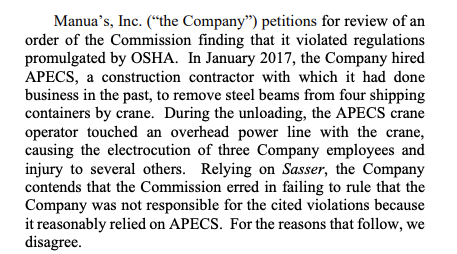
The “Scalia” in the case caption is Eugene Scalia, Secretary of Labor — who happened to be editor-in-chief in law school. That prompted me to research what he wrote as a student, and I came across this remarkable issue of the University of Chicago Law Review:
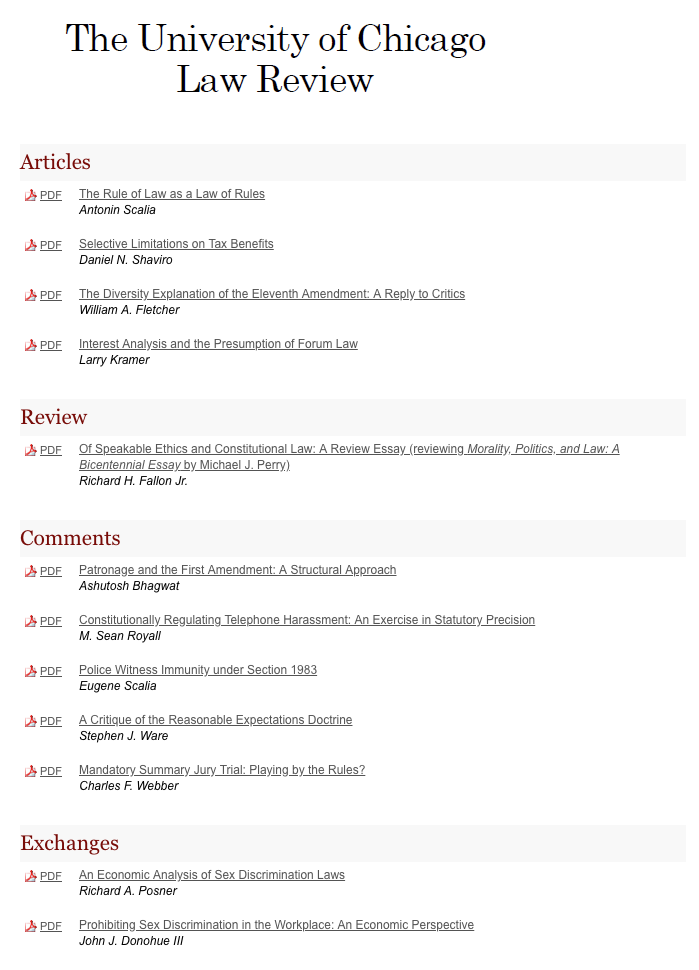
Wow. That’s a lot of firepower in a single issue. The Rule of Law as the Law of Rules, of course, is the most cited article in the history of the University of Chicago Law Review.
Finally, United States v. Lorenzana-Cordon is a criminal appeal:
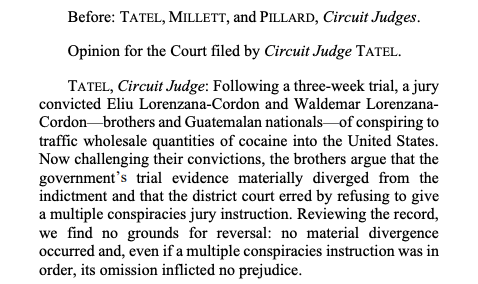
Students, there is far too much criminal law scholarship and far too little administrative law scholarship. So if you have, say, a Fourth Amendment article in the pile, skip it. 😉
* Note to judges: please contract me if you’re looking for clerks!
** Note to law reviews: please contact me if you’re looking for articles!
D.C. Circuit Review – Reviewed is designed to help you keep track of the nation’s “second most important court” in just five minutes a week.



